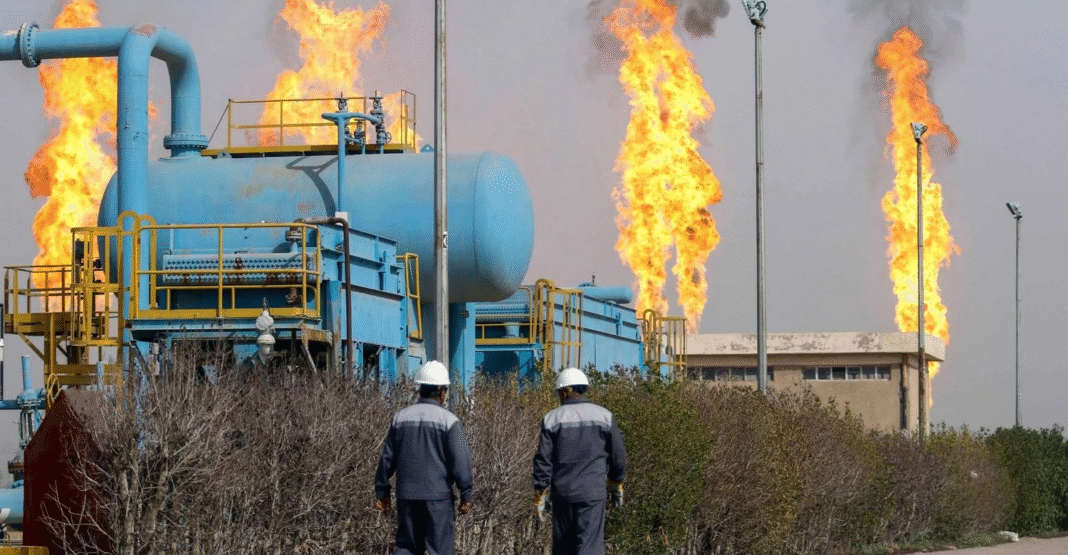Iraq saw a surprising shift as Basrah crude price rises even while global oil prices fell. The increase shows a rare trend where local benchmarks move against wider market conditions.
On Tuesday, Basrah Heavy climbed by 57 cents, reaching $66.68 per barrel. At the same time, Basrah Medium gained the same amount, closing at $69.78 per barrel. These increases came despite a broader pullback in oil prices worldwide.
Across global markets, oil prices dropped following a nearly 2% rise in the prior session. Traders reacted to new signals about U.S. tariffs and higher-than-expected production from OPEC+. These developments created uncertainty and added downward pressure on international benchmarks.
Brent crude stood at $69.37 per barrel by the end of the day. U.S. West Texas Intermediate (WTI) settled at $67.69 per barrel. These numbers reflected concerns over weakening demand and supply expansion from major oil producers.
Despite these global shifts, the Basrah crude price rises remained a key highlight for Iraq’s oil sector. Analysts say local demand dynamics and specific export deals may explain the resilience. Iraq may also benefit from long-term contracts and regional sales that cushion it from global volatility.
The ongoing increase in OPEC+ output has worried many market watchers. Investors fear it could oversupply the market, especially if global demand slows. However, Iraq’s Basrah crude types appear to enjoy stable demand, particularly from Asian buyers.
Traders in the region noted that Basrah grades often track separate trading cycles. These cycles allow room for pricing differences, even when global prices fall. Iraq’s consistent supply and refinery demand help keep Basrah prices relatively strong.
Moreover, some experts believe logistical factors contributed to the Basrah crude price rises. Limited shipping delays and favorable delivery terms may have played a role in price stability.
This trend reinforces Iraq’s unique position in the oil market. While global prices face growing uncertainty, Iraq’s Basrah crude grades continue to show strength. This price resilience may support Iraq’s budget and export goals in the near term.
Going forward, market analysts will watch if Basrah crude price rises continue to defy broader patterns. Much will depend on geopolitical shifts, OPEC+ strategies, and U.S. trade policies.


